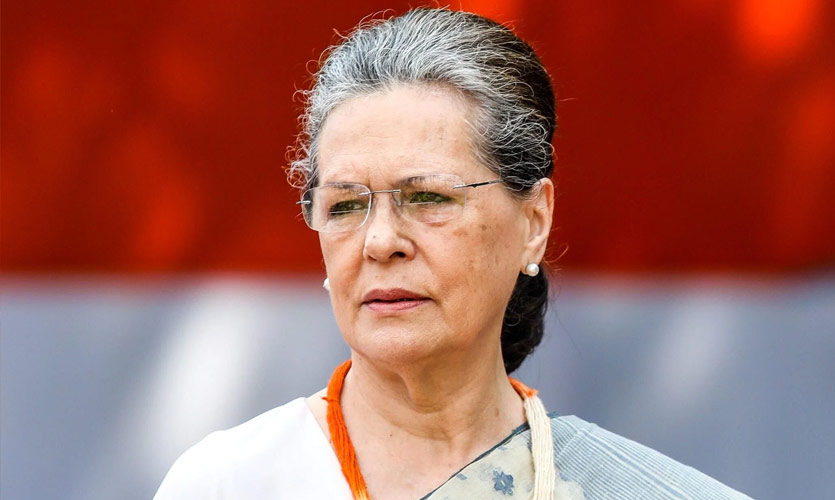In a meeting called by the Congress Working Committee on Sunday, committee members decided that interim party president Sonia Gandhi will continue in the same capacity.
The Congress recently lost the Punjab election to the debutant Aam Aadmi Party. It also lost Uttarakhand, Manipur, Goa and Uttar Pradesh, to the BJP. While Rahul Gandhi and Priyanka Gandhi Vadraare were active campaigners in the past election season, Sonia Gandhi took a backseat. Although it seems the party still has faith in her. What is the reason behind this faith?
Becoming one of India’s most powerful politicians has not been a cakewalk for Sonia Gandhi. Born Sonia Maino on December 9, 1946, in Lusiana, Italy, she belongs to a Roman Catholic family. Despite being an average student, Sonia had a strong grip on languages such as Spanish and Italian. In 1964, she went to Cambridge to study English at a school of linguistics. Rajiv Gandhi was also doing his engineering from Cambridge at the time. After the wedding, Sonia moved to India with her husband, into Prime Minister Indira Gandhi’s house at the time.
Rajiv Gandhi’s marriage to an Italian has been condemned by many, and used as a political tool. However, Sonia Gandhi has refuted them all with a display of ‘Indianness’.
Political Journey
On June 20, 1975, Sonia participated in a political rally, for the first time. In response to a high court ruling against Indira Gandhi’s electoral campaign, the Gandhi family decided to address people at Delhi’s Boat Club. It was Sanjay Gandhi’s idea that the whole family should be present there. Sonia’s nervousness at the campaign was apparent as she couldn’t even wave her hand, and was visibly shivering in front of a massive crowd of over lakh.
Indira Gandhi’s assassination by her own guards in 1984, in response to Operation Blue Star, shook the country. Sonia Gandhi accompanied her to AIIMS, Delhi. After Indira Gandhi’s death, Sonia tried to convince Rajiv Gandhi to deny the prime minister’s position, as there was a lot of pressure on him to take it. She feared his assassination. But Rajiv Gandhi was adamant. He believed it was his responsibility at the time to take up the position and deal with the consequences head-on. Tragedy knocked on their door again quite soon. In 1991, he was killed in a suicide bombing in Tamil Nadu. While several leaders like Sharad Pawar, Arjun Singh, and Shankar Dayal Sharma were considered to take his place, Narsimha Rao, who was on the verge of ending his political career, became the ninth Prime Minister of India.
It was in 1997, when the proposal for Sonia Gandhi’s party presidency was first given. Sitaram Kesari, who served as the president of the Indian National Congress from 1996 to 1998, was becoming more of a liability than an asset for the party, with no mass appeal. The ‘Kesari Hatao Muhim’ (Remove Kesari Campaign) was picking up steam at the time. In 1998, Sonia agreed to become the party president. The initial phase was difficult as the party lost to the Atal Bihari Vajpayee-led BJP that year, and she became the Leader of the Opposition. However, the 2004 and 2009 general elections turned out to be a massive success for the Congress, which solidified its groundings after winning two consecutive elections.
Read more: UP Election Results: BJP Bags Win With Higher Vote Share Than In 2017
In 2004, the BJP-led opposition raised the issue of her Italian descent. Although Sonia Gandhi surrendered her passport in 1983 in lieu of Indian citizenship, her Italian heritage seemed to be an impediment. After the 2004 win, many were still expecting her to become the prime ministerial candidate. However, addressing a parliamentary session, she said that becoming the prime minister was never her goal. “Mai apni aatma ki awaz ke mutabiq chalungi, mai ye pad sweekar nahi karungi,” she had said adamantly, leading to Dr Manmohan Singh’s appointment.
Behind most of Congress’ welfare schemes, Sonia Gandhi’s backing has proven to be key. She is known for supporting the Right to Information law, and other crucial food and education policies in India. She also played an active role in the demand for the creation of a new state of Telangana. It is perhaps her collaborative approach and political shrewdness that the grand old party members are seeking, after months of internal rifts that cost the Congress one of the last three states it governed.










